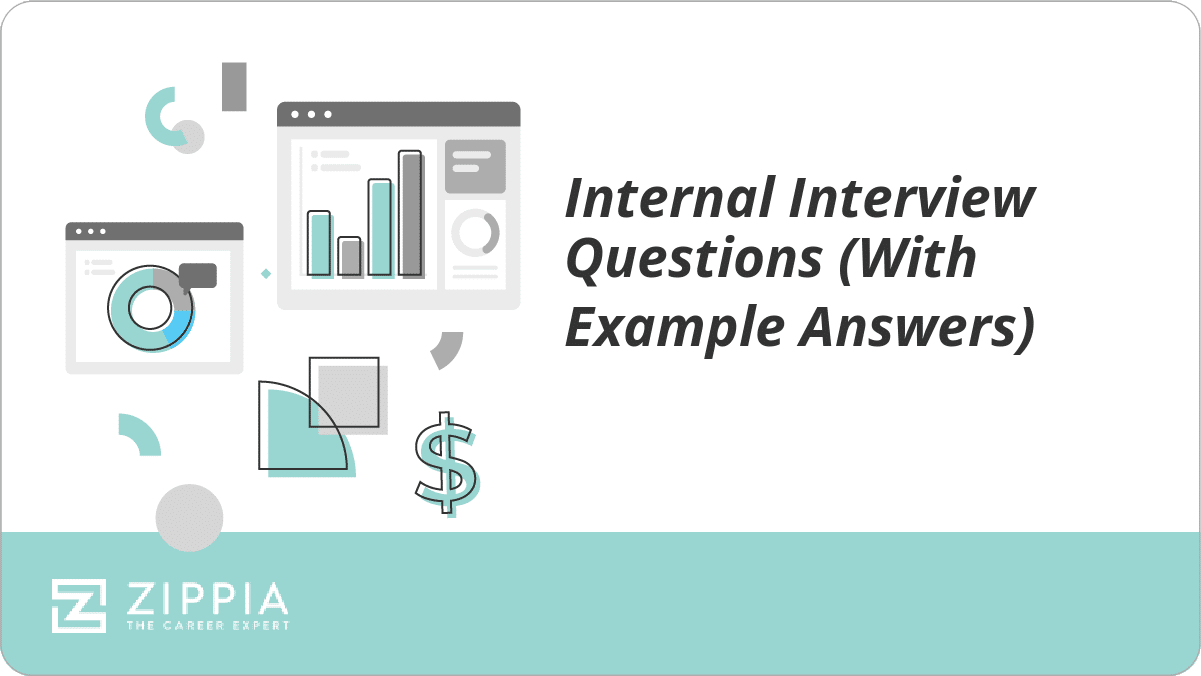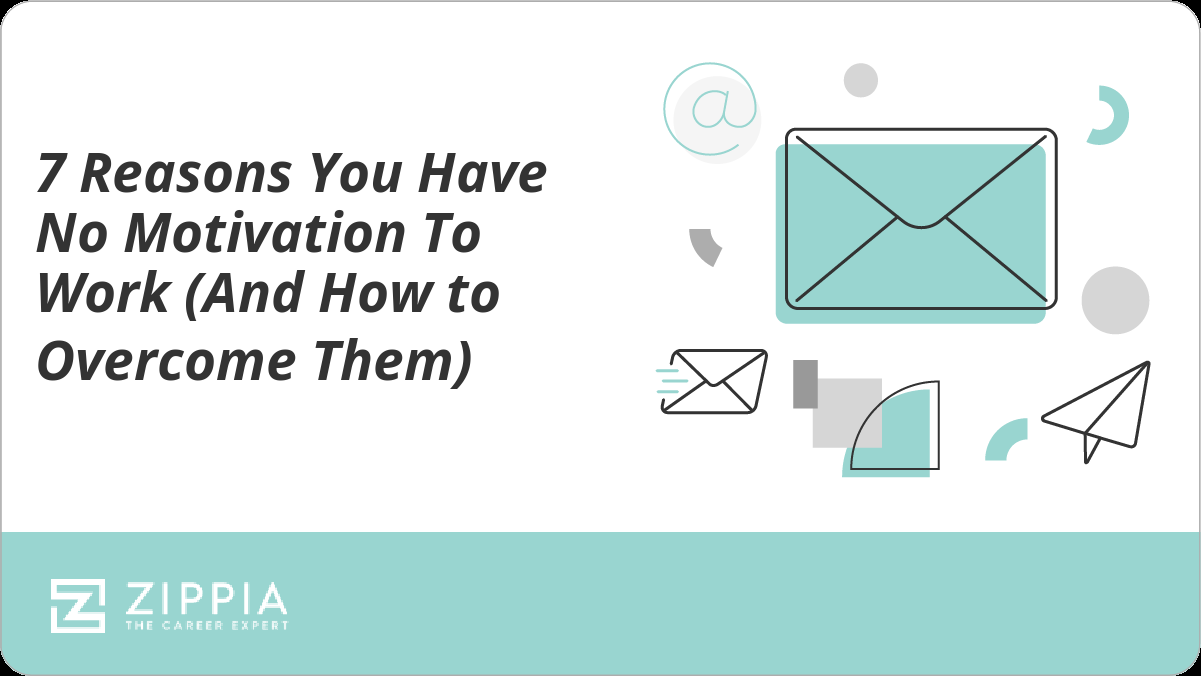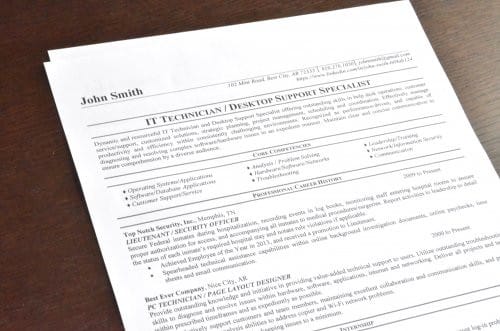- Common Questions
- Interview Questions
- How To Answer Tell Me About Yourself?
- Elevator Pitch
- Where Do You See Yourself In 5 Years?
- What Are Your Career Goals?
- When Can You Start?
- How Do You Define Success?
- Describe Your Work Ethic
- Where Are Your Current Duties?
- What Are Your Learning Goals?
- Intrinsic Vs Extrinsic Motivation
- What Is Your Desired Salary?
- What Makes You Unique?
- Why Are You The Best Person For This Job?
- Reasons For Termination
- What Are Your Work Values
- How To Make A Hard Decision?
- What Are You Most Proud Of?
- Personal Code Of Ethics
- Problem Solving Interview Questions
- Taking Initiative Example
- How Do You Prioritize Your Work
- Explain Gaps In Employment
- Most Rewarding College Experience
- What Is Your Work Style
- Tell Me About A Time When You Made A Mistake On The Job
- Tell Me About Gaps In Employment
- What Are You Passionate About
- What Skills Would You Bring To The Job
- Who Is Your Mentor?
- Tell Me About Gaps In Employment
- How To Answer Tell Me About A Time You Disagreed With Your Boss
- How To Answer Common Screening Questions
- Types Of Questions
- Situational Interview Questions
- Promotion Interview Questions
- Internal Interview Questions
- Open Ended Interview Questions
- Tough Interview Questions
- Leadership Interview Questions
- Teamwork Interview Questions
- Interview Questions About Communication
- Personality Interview Questions
- Internship Interview Questions
- Ice Breaker Questions
- Recruiter Interview Questions
- Brain Teaser Interview Questions
- Group Interview Questions
- Competency Based Interview Question
- Grad School Interview Questions
- Scrum Interview Questions
- Excel Interview Questions
- Common Phone Interview Questions And Answers
- Job Specific Questions
- Why Did You Choose Nursing?
- Why Do You Want To Be A Teacher?
- Why Do You Want To Be A Doctor?
- Why Do You Want To Be A Police Officer?
- Police Officer Interview Questions
- Why Do You Want To Be An Accountant?
- Sales Interview Questions
- Interview Questions For Managers
- Retail Interview Questions
- Teacher Interview Questions
- Accounting Interview Questions
- Teaching Philosophy Examples
- Management Philosophy Examples
- Leadership Philosophy
- What Does Customer Service Mean To You
Find a Job You Really Want In
Interviewing for a job at a company you already work at might seem like an easy task. This isn’t always the case.
When interviewing for a job, you should treat it like any job interview, internal candidate or not.
In this article, you’ll learn why companies conduct internal interviews, what questions they usually ask, and some tips to help you put your best foot forward in this situation.

What Is an Internal Interview?
An internal interview is a job interview for a different position at a company where you already currently work. Whether the company is looking only at internal candidates for a job or is opening it up to external applicants as well, each candidate still usually has to go through the interview process.
Since the company does know you and your work, these interviews are often casual meetings with the hiring manager or supervisor, especially if the position is only open to internal applicants. If they’re accepting external applications, however, you’ll probably have to go through the same formal process as everyone else.
Either way, you’ll want to show that you’re taking the process seriously, so it’s important to be prepared for your interview by going over your answers to questions they may ask you.
General Internal Interview Questions
When you’re interviewing for an internal position, you should still be ready to answer some of the typical interview questions. These may include:
Questions About Your Experience and Background
Even in an internal interview, you will still probably be asked questions about your work experience. While the hiring managers may have some idea about your qualifications, they’ll still want to know why you’re a good fit for this new position.
When you’re answering these questions, if you talk about your current role, make sure you don’t speak negatively about it, your department, or your supervisor. Focus instead on your skills and how this new position could better utilize them to benefit the company.
Here are some examples of questions you might encounter in this vein:
-
How long have you been working in this field now?
-
What is a challenge or conflict you’ve faced while working for us,and how did you handle it?
-
Does your manager know you applied for this position, and would they recommend you for it?
-
What have you learned from your previous jobs that you could apply to this new one?
-
What do you like best about your current position?
-
What do you like least about your current position?
-
What did you learn at a job outside of our company that we should be implementing here?
In-Depth Internal Interview Questions
While there are benefits that come from an internal hire, this can also bring unique challenges and complications to the organization. If you do get the position, they’re going to need to find someone else to fill your role, and if you don’t, they need to know how you’ll respond.
Because of this, internal interviews are often centered around what it would mean for you to switch roles. The interviewer wants to know that your intentions for changing positions are good and that the transition will go smoothly.
You might be asked questions like these:
-
If you were hired for this role, what would you do to help train your replacement?
-
What kind of training would you need to be successful in this role?
-
What would you do in your first 30 days in this job?
-
If you aren’t selected for this job, how would it affect your current role?
-
Which of your current responsibilities have prepared you for this position?
-
Tell me about a time you had a disagreement with a coworker. How did you handle it?
-
Based on your experience with the company, what changes would you make to this position?
Internal Interview Questions With Example Answers
Even though it’s all but impossible to have prepared answers for every interview question you’ll encounter, practicing your responses to some of the most common ones can be immensely helpful. Here are some examples of questions and answers that are common to find in an internal interview:
-
What sets you apart from other applicants? Hiring managers want to know that you’re going to be confident in the position you’re applying for. They also want to know that you understand everything that the job entails and that you truly believe you can do it well.
When you answer this question, remember that now is the time to tastefully toot your own horn. Be honest about your skills and why you think they’d be a good fit for this position, and make sure you highlight what makes you unique.
Example AnswerMy experience organizing teams both at this company and in past positions will serve me well in this job. I’ve developed the communication and interpersonal skills necessary to create productive teams and keep them motivated. Working with this department during my time in my current role has also allowed me to understand how the individuals I’d be managing work best, which would help me set them up for success.
-
Would your manager and coworkers recommend you for this role? This question can be a tricky one to answer in an internal interview, because the interviewer can just go ask your managers and coworkers what they think of working with you.
-
Why are you interested in changing to a new position? This question highlights one of the complicated aspects of applying for a job internally. Hiring managers are going to wonder what is motivating you to leave your current position and apply for another one.
-
What’s your greatest success story from your time in your department? Questions about your accomplishments are a great time to talk about your contributions to larger corporate goals. It’s also vital that you bring your team into your answer to show you understand that collaboration is key to success.
Other than that, remember to use the STAR method to frame your answer, and you’ll be all set.
Example AnswerStarting with the sales team 2 years ago, there have been a lot of ups and downs, but we’ve always gone through it as a team. Last fall, when we saw that our new sales were increasing but that our subscriber rates were slipping, we all got together and made a strategy to nip that problem in the bud. By generating new materials for existing customers alongside the marketing team and working with the product team to make more engaging tutorials, we were able to boost subscriber retention by 20%, and it’s continued working well into this year.
-
Do you think your ability to continue in your current role would be affected if you’re not chosen for this job? As far as tricky questions go, this one is pretty high up there. Obviously, you want to indicate that you really want this new job, but you don’t want to seem like you’ll be so sour if you don’t get it that you’ll quit (even if that’s totally the case).
It’s a fine line to walk, but try to strike the tone that silver medalists take (happy for the winner, willing to work harder in the future) while maintaining the confidence of a gold medalist.
Example AnswerWhile I would be disappointed to miss out on this opportunity, I would not be put off from my current responsibilities. It’s important to emphasize that my interest in this role is because I believe my skills have outgrown my current position and I feel I can contribute more in this new role. However, I still enjoy the tasks of my current job and would still pursue other chances to make meaningful contributions to the department.
-
How would you handle your transition to the new role? This question can also take the form of “what’s your plan for the first 30/60/90 days on the job.” These questions are extra important for internal candidates because you’re supposed to know a lot more and are expected to hit the ground running faster than an external candidate.
Think hard about what you’d actually do and consider preparing some additional materials that lay out your exact plans, as well as strategies for achieving those goals.
Example AnswerFirst and foremost, I would get together with heads of QA and manufacturing to make sure we’re all on the same page as far as protocol and policy both on the factory floor and in the lab. Next, I’d talk to my team to learn about specific pain points in their processes. I find it helpful to bring all of these comments and observations together into a living master document to ensure that we have an established workflow or system in place for resolving problems as they arise. Finally, based on discussions with management, I would set quarterly goals as well as talk to other supervisors about tweaking KPIs to ensure relevance and impact.
Because of this, it’s important that you’re honest in your response. Be positive, but don’t stretch the truth.
I believe that both my managers and coworkers would recommend me for the job. They’ve seen that I’m dedicated to my work and to supporting them in theirs, and I believe they also see that this new role would be a great fit for my skills.
When you answer this question, be sure to not put down your current role or make it sound like you think you’re overqualified or deserve better. Instead, focus on how you’ve grown and what you can now bring to the table with your honed skills.
I’ve really enjoyed working in my current position for the past five years, and during that time I’ve been able to work on many cross-departmental projects.
Because I’ve gained so much experience with these types of projects, I’ve begun to take on more and more of the leadership and organizational roles within them.
I believe that this new position will give me the opportunity to use this experience to further benefit the organization since it would allow me to focus even more of my time on setting up these teams for success.
Internal Interview Tips
Even if you’ve already worked closely with the person who will be interviewing you, you still need to prepare as much or more as you would for an external interview.
Here are some tips to keep in mind when you’re preparing for the unique experience of an internal interview:
-
Tell your manager that you’re applying for the position. Hiring managers are going to reach out to your supervisor to ask if they’d recommend you for the position, and you don’t want this to be the first time they hear of it.
-
Use your unique position to your advantage. If the company is also accepting external applications, you have some coveted insider information for your interview.
You’ve seen the company and department in action, and you might even know the person who’s interviewing you. Use this knowledge to highlight the particular skills and qualifications you know they value for this position.
You can also work to show how this inside knowledge would benefit you if you did get the job. This is a unique quality to have, so make sure you point out all of the positive aspects about having this perspective.
-
Be professional. Even if you know the interview will be casual, you should still put the same amount of effort that you normally would into preparing for the meeting.
Dress to impress, even if that means your outfit is a bit more formal than what you would normally wear to work. Don’t overdo it, but the extra effort will show that you’re taking this seriously.
If you know the interviewer, be friendly, but still keep it professional. Answer the questions as in-depth as you would for someone who you’ve never met.
-
Be prepared with examples. Some of the most common interview questions out there are behavioral interview questions. That means that interviewers will ask questions about your past behavior in order to predict your future performance in this new role.
Before the interview, consider some recent and noteworthy contributions you’ve made that’ll help you stand out. While it’s great to consider your accomplishments, internal interview preparation also involves a hard look at your past mistakes and areas for growth. While these questions might be stressful, it’s easier to respond when you’ve got an idea of what you want to say.
Finally, practice the STAR method (situation, task, action, result). It’s a neat way to organize your stories into brief but coherent narratives that your interviewer will be able to easily understand. While it’s impossible to come up with answers for every behavioral interview question, do your best to brainstorm examples of your various skills and traits being used for successful results.
-
Do your homework. Practice your answers, come with a list of questions ready to ask them in return, and come knowing exactly what you’re applying for.
Research the position and department to show that you are aware of what you’re getting into and that you’re taking it seriously. You might even want to brush up on your company’s mission, vision, and values.
-
Follow up. Just as you would after an external interview, send a thank you card or email to your interviewer, ideally the same day as your meeting.
If and when you see your interviewer around the office, be friendly, but don’t bug them about the position or try to make an overly good impression. Just wait patiently like you would for any other job.
Once the date that they said they would get back to you has passed, politely follow up about the status of your application. If you weren’t given a date, wait about a week or two to do this.
This extra effort will further demonstrate your desire for the role, which may just push you to the top of the list of applicants and result in a job offer.
Save yourself some embarrassment and additional questions by talking to your manager about the new position first. This will not only help you prevent a sticky situation, but it can also help you in your interview, since your manager may know some tips and tricks to help you make a good impression.
Internal Interview Questions FAQ
-
Do internal candidates have an advantage?
Yes, internal candidates have an advantage. They have already established a relationship with their boss and peers. The company knows how they are as an employee.
-
What are three things to do before exiting the interview?
Three things to do before exiting the interview are:
-
Ask questions
-
Express interest in the job
-
Address any concerns
-
-
Do companies always choose the internal candidate?
No, companies don’t always choose the internal candidate. Depending on qualifications and skills, the company will go with the best candidate for the position, whether it be a internal or external hire.
- Common Questions
- Interview Questions
- How To Answer Tell Me About Yourself?
- Elevator Pitch
- Where Do You See Yourself In 5 Years?
- What Are Your Career Goals?
- When Can You Start?
- How Do You Define Success?
- Describe Your Work Ethic
- Where Are Your Current Duties?
- What Are Your Learning Goals?
- Intrinsic Vs Extrinsic Motivation
- What Is Your Desired Salary?
- What Makes You Unique?
- Why Are You The Best Person For This Job?
- Reasons For Termination
- What Are Your Work Values
- How To Make A Hard Decision?
- What Are You Most Proud Of?
- Personal Code Of Ethics
- Problem Solving Interview Questions
- Taking Initiative Example
- How Do You Prioritize Your Work
- Explain Gaps In Employment
- Most Rewarding College Experience
- What Is Your Work Style
- Tell Me About A Time When You Made A Mistake On The Job
- Tell Me About Gaps In Employment
- What Are You Passionate About
- What Skills Would You Bring To The Job
- Who Is Your Mentor?
- Tell Me About Gaps In Employment
- How To Answer Tell Me About A Time You Disagreed With Your Boss
- How To Answer Common Screening Questions
- Types Of Questions
- Situational Interview Questions
- Promotion Interview Questions
- Internal Interview Questions
- Open Ended Interview Questions
- Tough Interview Questions
- Leadership Interview Questions
- Teamwork Interview Questions
- Interview Questions About Communication
- Personality Interview Questions
- Internship Interview Questions
- Ice Breaker Questions
- Recruiter Interview Questions
- Brain Teaser Interview Questions
- Group Interview Questions
- Competency Based Interview Question
- Grad School Interview Questions
- Scrum Interview Questions
- Excel Interview Questions
- Common Phone Interview Questions And Answers
- Job Specific Questions
- Why Did You Choose Nursing?
- Why Do You Want To Be A Teacher?
- Why Do You Want To Be A Doctor?
- Why Do You Want To Be A Police Officer?
- Police Officer Interview Questions
- Why Do You Want To Be An Accountant?
- Sales Interview Questions
- Interview Questions For Managers
- Retail Interview Questions
- Teacher Interview Questions
- Accounting Interview Questions
- Teaching Philosophy Examples
- Management Philosophy Examples
- Leadership Philosophy
- What Does Customer Service Mean To You





